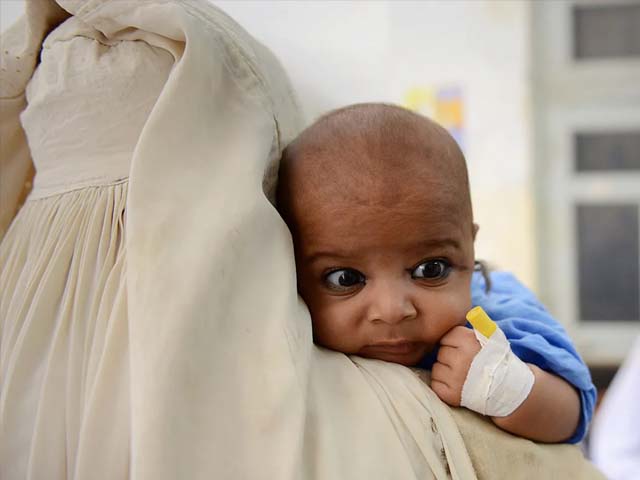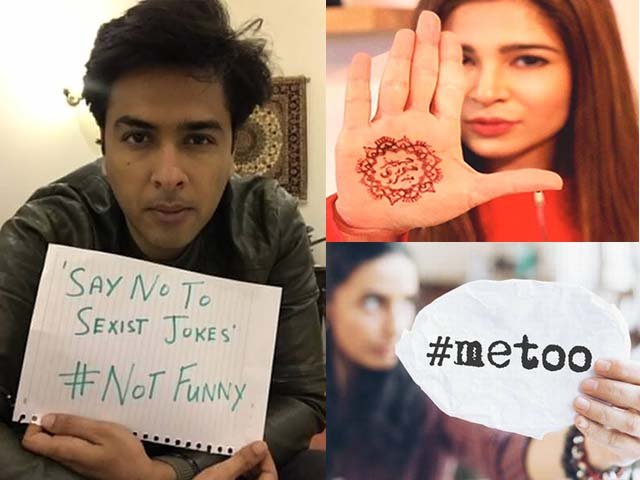
We need to stop treating menstruation as a ‘fault’
I can talk down to poor women about how filthy is the way they handle their hygiene. But they never had my privilege.
“So what do you do when you… you know… have your monthly period?” I said to my domestic helper, after my mouth-gaping-open-in-shock reaction was over and I found my voice.
For an urban woman, what she was telling me was unthinkable. I was truly scandalised that many women in Pakistan’s underprivileged parts walk around with no sanitary cloth or napkins when they have their menstrual period. Others do use folded pieces of cloth, she told me, but even then the hygiene conditions she was describing were hardly satisfactory.
The year was 2010. Pakistan had been hit by one of the worst natural disasters in the country’s history – floods that affected the lives of some 20 million people. My friends and I were collecting donations and sending them off to remote villages and affected areas. Those working on ground were asking us to send dry food items, bedding, medicines, clothes and basic items like soaps and sanitary napkins.
“People here are breaking out into skin infections due to the stagnating dirty water. Women need their supplies for menstrual hygiene,” was the message we got.
Yet, here was a Pakistani woman hailing from a rural area, educating me in a basic reality – that even if we did send sanitary napkins, would those women, for whom even seeing a midwife in pregnancy is a luxury, know how to use it?
But then, realistically, is menstrual hygiene even a priority to ponder about for people living below the poverty line, unable to even get two square meals? It is all good, noble and convenient for me and my likes, to sit in our comfortable homes in the cities and talk down to poor women about how filthy is the way they handle something so basic. The reality is they have not had the exposure, nor the access to things we take for granted.
As the world celebrates Global Menstrual Hygiene Day on May 28, how far is Pakistan, in reality, from providing its female citizens the means to go through a natural physiological process with dignity?
Research points out that almost 50 per cent of Pakistani girls in rural areas and underprivileged circumstances miss school during their menstrual period, and absenteeism in school can improve drastically if they have access to protective material and proper toilet facilities at school. Yet, sanitary cloth and napkins remain not a basic need but a luxury for Pakistan’s daughters who cannot afford them, or are simply unaware. The problem becomes even gorier when faced by displaced women living in slums, camps for IDPs or in nomadic setups.
To go through their monthly cycle hygienically and in a dignified manner, girls and women need access to water and proper sanitation. Privacy is needed to change; water and soap is needed to wash their hands and the cloths if they are using those, and means to either dispose used materials or a private place to dry them in case of reusable cloths.
Poverty, however, is not the only issue here. The bloody taboo refuses to be broken. Recently, an urban affluent woman was overheard commenting that advertisements for these products should be banned. Giving credit where due, advertisements for sanitary napkins are actually now more decent than many other ads, and are actually more educative in nature in an attempt to raise awareness.
A two-pronged approach will, therefore, have to be adopted to help women of Pakistan triumph against the lack of a basic human right. For starters, they will have to be educated about the health-related consequences of not maintaining menstrual hygiene management (MHM). As a society, we will have to learn more about it. Systems have to be evolved for disposal of the waste cloths and napkins to not make it an environmental hazard, as well as let women have the dignity to dispose it respectfully.
Secondly, access to products that help women at a low cost is something we need to think about. Whether it be clean cotton or rags, or affordable napkins, women everywhere should have the right to procure them and use them. We need more initiatives to address the problem.
It is time the world stops treating menstruation as a fault for which women continue to pay a price by facing embarrassment and helplessness.




COMMENTS (10)
Comments are moderated and generally will be posted if they are on-topic and not abusive.
For more information, please see our Comments FAQ